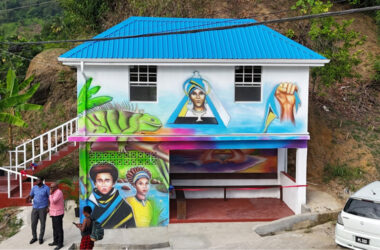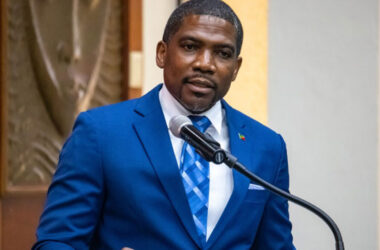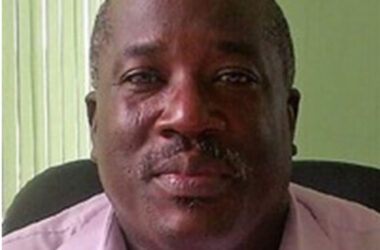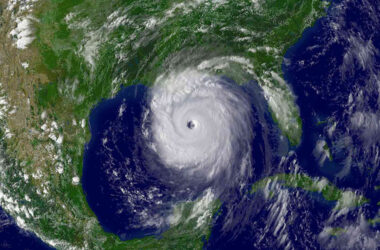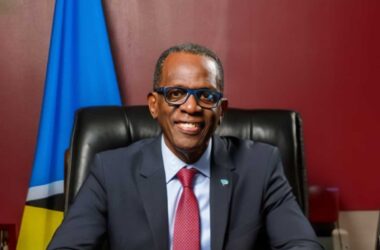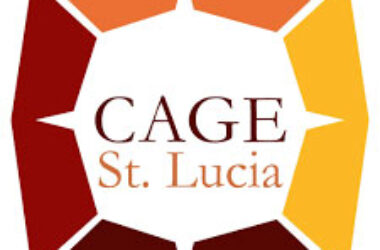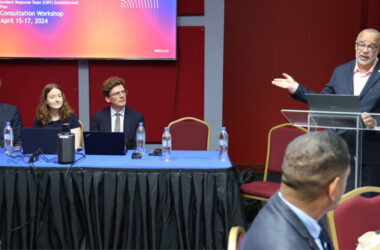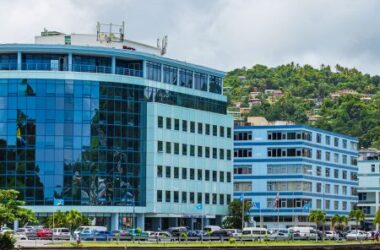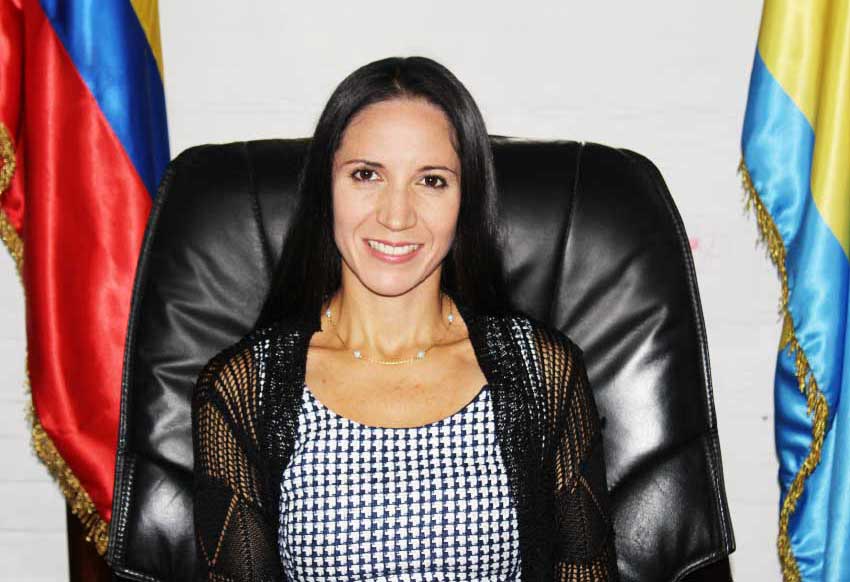
Venezuela is re-igniting a 200-year old border dispute with Guyana for land rights to a territorial region between the two countries.
Despite several negotiations over the years to quell the disagreements, the two parties have failed to reach an amicable decision in the territorial dispute for ownership of the Guayana Esequiba.
And now, what appears to be most disheartening, according to a leading Venezuelan diplomat is the proposed attempts by a multi-national corporation to undertake oil exploration in that borderline territory.
Leiff Escalona – Ambassador of the Bolivarian Republic of Venezuela in Saint Lucia is on her second stint as the top Venezuelan diplomat in the country. The ambassador recently provided an update on the matter, which, according to her, is of great national importance to the Venezuelan people in preserving their heritage.
In providing a historical account on the developments, Ambassador Escalona noted that the crux of the matter stems from the reasons why Venezuela, for more than 200 years, “continues to defend the rights that accompany it, which historically and legally demonstrate that the territory of the Guayana Esequiba belongs to Venezuela”.
“The discussions didn’t start recently, because we have more than 200 years with the same situation and it is very important for us to express what are the reasons (historically) for this dispute,” said Ambassador Escalona.
“During the colonial period, the Europeans came to those territories and they distributed all our lands to the Portuguese and the Spanish Empire,” she explained.
She said, prior to 1492, the territory had been inhabited by the ‘indigenous people’, before the colonialists began navigating to the Americas.
There is a fascinating account on the historical context of this border dispute, which arose between 1492 and 1840, during the Formation of the territory (colonial period and Independence period).
The ambassador recalled that – the ‘Liberator’ Simon Bolivar was very influential in these early struggles for the liberation of the Venezuelan people. “Bolivar participated in many battles to free Venezuela in their quest for Independence …and not only Venezuela, but also Colombia, Peru, Ecuador and other territories towards attaining their Independence,” she said. “But at the same time, to establish good relations with the countries in Latin America.”
According to the ambassador, President Nicolás Maduro recently addressed the Venezuelan people in Defense of the Essequibo, and presented the six stages that characterize the historical development of the controversy between the Bolivarian Republic of Venezuela and the Cooperative Republic of Guyana.
The European colonialization of the American lands begun in 1492 and extended until 1840, when the territory of what is now Venezuela was formed. However, the Venezuelan territory had been defined, since 1819.
“Then in our first Constitution in 1830, the Venezuelan territory is defined with the same limits that the Captaincy General of Venezuela established by the Spaniards before the political transformation of 1810,” Escalona added. “We have all the documents that certify that this territory was always part of Venezuela.”
The ambassador continued, “In all our constitutions, our first law – the Principle law in Venezuela – the Constitution, from the first one to the last one, every single law established the territory of our country. And this territory was always part of Venezuela.”
Quoting from a historical document, she read: “It is in 1777, an iconic date, where the Kingdom of Spain decreed the creation of the Captaincy General of Venezuela. It was the first administrative unit of the Spanish Crown that united all the provinces, which later formed the territory of Venezuela.”
Between 1840 and 1899, the second stage of this historical development unfurls.
The year 1840, is succinctly defined as “the period of aggression, dispossession and arbitral fraud”, when the British Empire -through illegal trickery- takes the first steps to enter the territory of the Republic.
It culminates in 1899, the ambassador explained, the year in which the fraud of the Paris Arbitration Award was consummated. At that time, Venezuela was immersed in a civil war and had no Venezuelan representatives in the discussions that took between the United States and the British Empire “to dispossess us of our territory”.
Historical accounts reveal that the United States appointed the Venezuelan representatives who participated in the fraudulent Paris Arbitration Award.
And in all these happenings, the ambassador maintains that up till now “Venezuela has proof of all these fraudulent negotiations and has demonstrated it in all international forums. The day the Award was announced, U.S. and British ships blockaded our ports with the aim of plundering our country and sank 10 Venezuelan ships.”
Furthermore, between 1900 and 1966, there was a period identified as the period of Imperial Diplomacy. This gave rise to the establishment of the ‘Geneva Agreement’, which Venezuelan officials claim was a binding agreement that bequeathed the validity of the Guayana Esequiba – as belonging to Venezuela.
“In this period, Venezuela went from an era of division, threats of blockades and military invasions to reaction, characterized by the denunciation and international achievements in the diplomatic area, through the signing of the documents that led to the drafting, acceptance and subscription of the Geneva Agreement of February 17, 1966,” Ambassador Escalona continued.
Between 1966 and 2015- was the Implementation of the Geneva Agreement. This stage, which focuses on the period between 1966 and 2015, involves the practical application of the Geneva Agreement, as well as the options stipulated in the document and the Charter of the United Nations, and the search for a peaceful and satisfactory solution for the parties.
Nonetheless, the ambassador argues, from 2015 up to presently, Guyana continues to assume a conflictive position.
Ambassador Escalona says, during this time (2015 to 2023), the combined interests and aggression of the Cooperative Republic of Guyana, aligned with its pacts with ExxonMobil and the United States Southern Command, which turn their backs on the Geneva Agreement, “continued (with the) violation of the international law”.
As such, moving on, in 2023, the Bolivarian Republic of Venezuela established a Consultative referendum. This document “projects a broad vision to the new stage of” discussions and negotiations.
The Venezuelan diplomat adds: “The history of Venezuela in its defense of the territory of Guayana Esequiba is very long. In these 200 years defined in these … historical moments, there have been advances and delays in the negotiations for this territory.
“For decades, the discussions on this issue were frozen, also diplomatic relations between Venezuela and Great Britain were broken, until the possibilities of negotiation were opened with the creation of the United Nations.”
Citing the global changes that evolved in 1945, after the collapse of the European empires, the diplomat said, “the process of colonization began to diminish, the rights of the peoples began to emerge, their self-determination, and in Venezuela, a popular movement arose to claim this territory – on November 12, 1962.”
Subsequently, the Venezuelan Minister of Foreign Affairs claimed Venezuela’s rights over Guayana Esequiba.
In the follow up, Great Britain recognized there was a dispute in that territory. Then Great Britain set aside the Paris Arbitral Award, and sat down to negotiate and to debate, resulting in the signing of the Geneva Agreement – on February17, 1966.
According to Ambassador Escalona: “The Geneva Agreement is the only international legal instrument that is signed by both parties, and it is the only one that Venezuela recognizes. It has the signatures of the Ministers of Foreign Affairs of Venezuela, Great Britain and the Prime Minister of Guyana.
“In this agreement, it is recognized that there is a pending Dispute that was not resolved by any Award, but to be resolved through diplomatic channels. It must be amicably resolved in a mutually beneficial, acceptable and satisfactory manner.
However, notes the ambassador, “Unfortunately, as of 2015, Guyana began to look for warmongering options and unilaterally began to initiate bidding processes with transnational oil companies such as ExxonMobil. At this time, Guyana unilaterally requested the United Nations to seek other solutions to resolve the territorial dispute.”
The Venezuelan regime feels strongly that “Guyana is not interested in continuing negotiations with Venezuela because economic interests prevail, responding to the guidelines of the US Southern Command and the interests of transnational corporations.”
In this regard, President Maduro has stated that the intention is “to fester a conflict, an escalating conflict to destabilize Venezuela, to destabilize the Caribbean, and to talk about destabilizing Venezuela and the Caribbean is to destabilize Latin America as a whole.”
He adds that, Venezuela will continue to insist on resolving this conflict through permanent dialogue and defend our “historical, legal, political and diplomatic truth of our country”.
Summarily, Ambassador Escalona states that, “Despite the circumstances that seek divisions, the objective is to achieve solutions, which is characteristic of the Venezuelan Government, since we have sought in good faith satisfactory, amicable, diplomatic solutions, solutions based on the law, on Bolivarian Peace Diplomacy.”
As a consequence, the Consultative Referendum was drawn up to gain feedback from the Venezuelan populace on the way forward in this matter.



